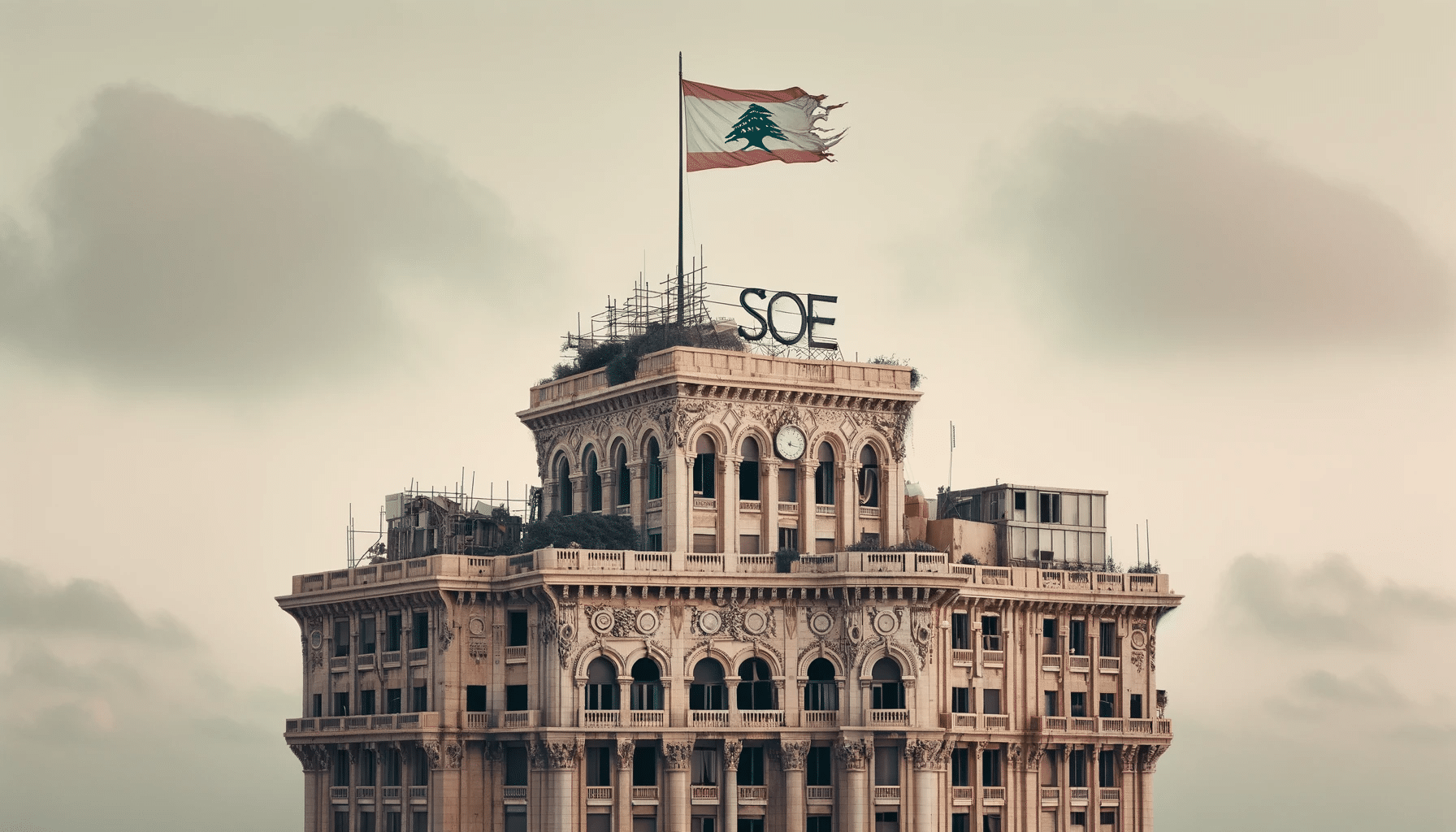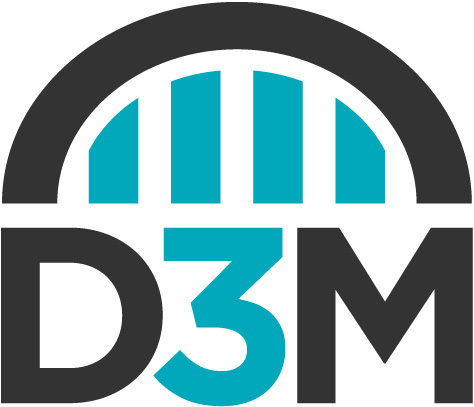Lebanon’s state-owned enterprises (SOEs) have emerged from the country’s financial crisis acutely vulnerable. They are widely seen as a bargaining chip, the privatisation of which would ease the government’s gaping deficit and settle scores in the form of a so-called ‘Sovereign Fund’. Understanding the scope of SOEs in Lebanon, however, and the global precedent for their reform suggests that reform and financial recovery are possible. Only after these have been achieved should regulated privatisation be considered, on a case-by-case basis, and according to a clear and legally defined process.
Summary
The reform of SOEs has remained at the centre of the urgent reforms supported by the International Monetary Fund (IMF) following multiple missions to Lebanon. In their June 2023 report on Lebanon, they noted that the government’s “lack of control over SOEs and large financial losses exacerbated fiscal and economic imbalances”.1 In the context of a nationwide financial crisis since 2019, and gaping government deficits, the impact of SOE financial losses is significant. Addressing these concerns, the IMF proposed various reforms to governance, operational viability, and fiscal risk limitation. According to their report, the Lebanese authorities had agreed to the proposed SOE reform plan. However, as of yet, there have been no changes to the current, dire state of Lebanon’s SOEs.2
This position paper draws upon IMF reforms, and wider global research, to present a comprehensive SOE reform plan for the Lebanese progressive movement. The proposed reforms prioritise the establishment of robust checks and balances, fiscal risk considerations, and institutional transparency. Finally, it suggests a privatisation process that can be considered only after the preceding reforms have been implemented, and on a case-by-case basis.
I – BACKGROUND & SCOPE
A. Scope of SOEs in Lebanon
The IMF defines an SOE in Lebanon as: a) enjoying administrative and financial autonomy, b) partially or totally controlled by the government, and c) engaging predominantly in commercial/economic activity.3 There are currently twenty-two SOEs in Lebanon, according to this criterion. These include Ogero for telecoms landlines and Alfa (MIC 1) & Touch Lebanon (MIC 2) as mobile operators, EDL, the four regional water establishments, Casino du Liban, Middle East Airlines, Régie des Tabacs et Tombacs, and the Port Authorities of Beirut, Sidon, Tyre, and Tripoli.
There is, however, significant variation in the immediate need for reform and recovery in these SOEs. Some SOEs are revenue generating, most notably the telecoms sector, the revenues of which totalled LBP 23.4 trillion between 2010 and 2020.4 However, governance concerns are prevalent. A scathing report by Lebanon’s Court of Audit, released in April 2022, documented the misallocation of public funds from telecoms SOEs and legal violations by the Ministry of Telecommunications (MoT).5
Meanwhile, EDL has been the main driver of fiscal costs for the government and composed between 89 to 96 per cent of SOE expenses.6 The reform of EDL to achieve cost-recovery is likely to trigger a dramatic change in the fiscal costs generated by SOEs. It is, therefore, a priority.
This position paper will also include enterprises that are not included in the IMF’s SOE criterion, such as state owned lands which encompass around a quarter of Lebanon’s territory. These are included considering the relative ‘ease’ of their liquidation puts them at risk of unregulated privatisation.
B. Privatisation Efforts
Privatisation is at the fore of public debate surrounding cost recovery in SOEs across the country. This has been demonstrated by the efforts of the Association of Banks in Lebanon (ABL) to establish a Sovereign Fund (صندوق السيادي). Initially mentioned in the government’s 2020 Financial Recovery Plan, the ABL presented an “Alternative Plan” which placed SOEs, including public lands, in a “Government Debt Defeasance Fund” (GDDF) (صندوق الحكومي). Theoretically, all GDDF shares would be given to BDL in return for the cancellation of government debts owed to the banks. This ‘sovereign fund’ model evolved in 2021 into a proposed ‘Lebanese Investment Corporation’ which would be managed by BDL and utilise SOE revenues to settle debts, while maintaining state ownership of these assets.
In response to the 2020 proposition, Albert Kostanian, a Lebanese economics expert and Senior Policy Fellow at the American University of Beirut’s Issam Fares Institute, outlined a series of pre-requisites for proper and transparent privatisation in Lebanon.7 These included a sound regulatory environment, anti-corruption laws and frameworks, a full and transparent procurement processes, well-functioning capital markets, and fair competition. Given their absence in Lebanon today, the privatisation of SOEs would be an unfair process that would primarily benefit Lebanese political and banking elites.
II – POLICY RECOMMENDATIONS
The following policies for reforming Lebanon’s SOEs are offered as a guide for the Lebanese progressive movement. Following on from this, a threshold and process for privatisation are outlined.
A. Conduct Inventory & Audits
Conduct and publish an inventory of SOEs in Lebanon, to be used as the basis for a new, overarching SOE law. An inventory clarifying existing SOEs and their organisation, drawn up by civil servants, will provide clarity for future policy making on the subject of SOEs. It should include a specific definition, criterion, and estimation of size for the Lebanese SOE sector. This inventory will be used as the foundation for a new SOE law, as recommended by the IMF, which will provide legislative protection to these enterprises and require legislative consideration for changes to their status. At present, its absence has enabled enterprises without legislative clarity, such as state-owned lands, to face a high risk of privatisation.
An audit of each SOE will follow the inventory. The audit will come in the form of a published report disclosing and examining the financial and operational performance of each SOE. It is particularly important given the valuation discrepancies of SOEs in Lebanon: the ABL estimated that Lebanese SOEs were worth US$40 billion, without referencing a source for this valuation, whilst Kostanian said their value was “optimistically half of ABL’s estimation” at around US$12-22 billion.8 An audit would settle an expertly informed valuation for individual and collective Lebanese SOEs.
The IMF recommends that the audit is conducted by a “reputable international firm” as opposed to existing in-state audit bodies or procedures.9 This report will recommend utilising Lebanon’s Higher Court of Audit, with an expanded mandate, to assess these SOE audits and relevant documentation. Both the audit firm and the Court must be provided with a fully digitized, comprehensive platform where data transfers and documents submissions from civil servants can take place, coupled with the authority to force government entities and ministries to comply with data requests.10
B. Rationale for Government Ownership
The government must publish a publicly accessible state ownership policy document defining the rationale and priorities for government ownership in each SOE. In Lebanon at present, the state ownership policy is implicit, meaning line ministries develop objectives on a case-by-case basis. A single state ownership policy is preferential as it provides state-owned enterprises and the general public with a clear understanding of the overall goals and priorities of the state as an owner. The overall justification for state ownership can be complemented by objectives outlined through supplementary legislation, regulations, or policies.
A State Ownership Policy Document, drawn up by experts and civil servants, will be used to assess SOE performance against defined financial and non-financial objectives. Crucially, such a document will include clear and conditional policies for when or if the government is to provide regular, as well as exceptional, support to SOEs. Explicit exit strategies for the withdrawal of exceptional support will also be included. In doing so, the reform would avoid repeating Lebanon’s experience whereby treasury injections in SOEs were approved according to the immediate needs of the relevant line ministry, as opposed to within a clear strategy.
It is a best practice for the State Ownership Policy Document to be regularly reviewed and updated by civil servants. The methods and regularity vary from country to country, but in the Lebanese context they can take place within the scope of annual audit reports outlined below.
C. Fiscal Risk Framework
An integrated risk management system should be established in each SOE. Such a system would produce periodic risk assessments measuring internal and external risks for their likelihood of occurrence and the impact of occurrence on the achievement of SOE objectives. Furthermore, they would explicitly treat a comprehensive set of corruption-related risks and consider high-risk areas, such as interactions between the SOE board, the co-ordinating agency, and government. This system can initially utilise the IMF State Owned Enterprise Health Check Tool to assess the financial soundness of SOEs through indicators reflective of an SOE’s profitability, solvency, and liquidity. The work of the risk assessment should be integrated into centralised fiscal policy planning by the Ministry of Finance and relevant line ministries.
D. Transparency and Oversight
i. Regulatory Authorities
Regulatory agencies in Lebanon should be established or reinvigorated under a reformed process of board appointment. At present, board member nomination rests with the relevant minister with subsequent appointment by the Council of Ministers. Instead of centralising such authority in the hands of the government, nominated regulatory board members must be subject to parliamentary scrutiny in the form of hearings by committees of MPs, civil servants, and relevant experts. If approved by a subsequent parliamentary vote, nominees can move to consideration by the Council of Ministers.
Appointments of board members should be staggered to maintain knowledge and expertise in between renewals of appointments. Meanwhile, the grounds and process for terminating appointments must be explicitly stated in legislation, limited to serious cases of misbehaviour, and involve parliamentary consideration.
The regulator should be subject to robust measures protecting the entity from political pressure or the influence of vested interests in decisions and budgeting, coupled with a clear institutional structure mandating its authority and role. The former is achieved through a combination of international best practices, such as the establishment codes of conduct for regulatory leaders and staff on the engagement with lobbying and interest groups and appropriate mechanisms to enforce them.
ii. Tariff Process
The authority to set and oversee tariffs for utilities offered by an SOE should be reinstated with the appropriate regulatory body. In the past, regulators were responsible for setting and monitoring tariffs for public utilities. However, under recent legislative changes, the authority to establish and oversee tariffs now rests with the relevant ministries. Nonetheless, regulatory board members possess the greater expertise to develop tariff methodologies effectively. In the absence of properly regulated tariff oversight, various ministries have independently pursued haphazard, poorly planned, and ineffective tariff hikes since the onset of Lebanon’s financial crisis. Restoring this task to the regulator, and enshrining it in law, would ensure that consumer prices accurately reflect the justified cost of services and align with current market dynamics.
iii. SOE Governance Bodies
The appointment process for members of SOE Boards of Directors must include a greater number of checks and balances. In Lebanon today, SOE board members are appointed by the Council of Ministers, with nominations by the relevant ministry. This has led to concerns regarding to the politicisation and patronage associated with SOEs boards demonstrated, for example, in 2020 with the EDL board composition. This process should be reformed however, so that following nomination by ministers, SOE board members must also be assessed by parliamentary selection committees and relevant regulatory boards, before being submitted for approval by the Council of Ministers.
SOE Boards of Directors must work within a robust legal framework to protect their independence and autonomy. This is achieved in part by the enforcement of SOE corporate governance standards promoting a “corporate culture of integrity”.11 This involves a clearly articulated and visible policy prohibiting corruption, explicit commitment from boards and management to internal controls, ethics and compliance measures, and cultivating an open culture that encourages good governance and integrity. Finally, corporate investigative and disciplinary procedures must exist to promote compliance and to address any violations in the board of relevant laws or integrity mechanisms.
iv. Annual Audits & Reports
Annual audit reports, including financial and non-financial disclosures, conducted by the Higher Court of Audit must be mandatory for SOEs. The World Bank recommends that SOEs produce accurate, publicly accessible audit reports that comply with international standards. Such standards include being conducted by auditors with the capacity to provide an objective assessment of company accounts, financial statements and internal controls. To avoid any potential delays, purposeful or otherwise, the Higher Court of Audit must be provided with a digital platform where data transfers and document submissions take place. It will also have the mandate to force ministries and SOE boards to provide necessary documents according to specific deadlines. The Court will submit the audit report to Parliament that votes to approve any treasury transfers to the SOEs in question.
Increased transparency of SOE performance is achieved through ex-ante and ex-post reporting on an annual basis. Ex-ante reporting must include descriptions of the various commercial and non-commercial objectives held by the SOEs and details of the financial assistance provided by the state. Ex-post reporting will encompass SOE financial performance in a range of areas during the preceding year.
Provision of ex-ante and ex-post information by SOE boards of directors to the Ministry of Finance is compelled by law and must be published in full in the budget. At present, financial information for Lebanese SOEs appears only as a one-line item in the Lebanese budget and are often entirely absent. Compelling its publication, and a greater level of detail, aims to enhance transparency within Lebanon’s SOEs.
E. Privatisation
i. Legislative Setting
The privatisation process must integrate a greater number of checks and balances, primarily, through the involvement of the appropriate sector regulator. At present, the Higher Council for Privatisation, established in Law 228/2000, oversees the planning and implementing of privatisation programs in Lebanon. It constitutes a ministerial committee chaired by the Prime Minister and composed of four permanent members whose mandate includes determining which SOEs are for sale, the timeframe for restructuring and sale, and the financial value of the institutions. The authority of the Council must be balanced, however, by the involvement in each stage of the appropriate regulator for the SOE under consideration.
ii. Privatisation methods
If privatisation is agreed upon by the regulator, Higher Council for Privatisation, and a parliamentary vote, the following methods must be followed sequentially to ensure the sale is transparent and organised according to international best practice.
Motives for privatisation
Privatisation objectives and rationale must be made clear in the form of a legally binding document. The document must be drawn up by the Higher Council for Privatisation in conjunction with the relevant regulator. Utilising the ownership policy (see Recommendation C. Rationale for Government Ownership) these two bodies will ascertain the extent to which the SOE at hand no longer falls within the rationale for state ownership and for what reasons. The document must also detail the type of divestment taking place, be it full privatisation, mixed/broadened ownership, or the formation of a public-private partnership (PPP). The document must include clear plans regarding for where financial proceeds from the privatisation of the SOE will be allocated. Once settled upon, the document must be submitted to and approved by Parliament before privatisation can go ahead.
Measures to ensure anti-corruption and integrity in privatisation
Each stage of privatisation process carries a unique set of risks relating to potential corruption – the abuse of power for personal or political gain – these must be considered and mitigated against.12 Managing corruption risks in the privatisation process includes a variety of measures. These involve establishing a legally binding document outlining the specific reasons an SOE is being privatised and assessing the purchaser(s). There must be clarity in this document as to the means of privatisation to mitigate transparency concerns.
Steps post-privatisation
Several steps must be taken post-privatisation. These include the Higher Court of Audit conducting an audit of the transaction and measuring the outcomes of privatisation. There must be a high level of accountability and transparency in handling the financial proceeds of the privatisation process especially if they are diverted to achieve certain public policy goals such as reducing debt, reinvestment of proceeds to support public services, or other policy priorities. This is ensured through a robust legally binding document referenced above outlining where funds are going to be allocated prior to privatisation. It is in within the mandate of the Higher Council for Privatisation and regulator to ensure that funds are allocated according to their initial purpose.
The regulator and parliamentary committees must conduct an independent evaluation of the privatisation projects that have been undertaken. This is based on the criteria established at the start of the process in the legally binding document referenced above that outlines the specific goals, rationales, and objectives of privatisation. A post-privatisation evaluation should also include an assessment of corporate efficiency and effects on markets and stakeholders. Finally, good policy practice supports an independent evaluation of the impact of the privatisation on consumers.
III – CONCLUSION
The preceding recommendations for reform are holistic in their focus and applicability across the SOE board. They tackle systemic issues that beset Lebanon’s SOEs to varying degrees. International best practice suggests that rigorous governance reforms should be front and centre in this process, and the recommendations reflect this. Beyond this, research suggests that governance reform significantly improves the efficiency and productivity of SOEs, a vital consequence for Lebanon’s population and government today.
Under the pre-requisite conditions privatisation can be successful. However, it is not a feasible or realistic emergency solution for Lebanon’s financial crisis, nor can it be weaponised to swiftly settle scores. As such a Sovereign Fund in any form must be rejected outright. Privatisation should be undertaken only when the government is able to negotiate a fair selling price for the SOE, strong regulatory preconditions are in place, and a clear framework is in place for the process to begin in a transparent manner.
FOR MORE ON SOE REFORM SEE CORRESPONDING POLICY PAPER & TALKING POINTS
This paper was compiled with the support of the Friedrich-Ebert-Stiftung.
IV – BIBLIOGRAPHY
Tools:
OECD Guidelines on Corporate Governance of SOEs
IMF State Owned Enterprise Health Check Tool
OECD A Policy Maker’s Guide to Privatisation
OECD Guidelines on Anti-Corruption and Integrity in State Owned Enterprises
OECD Guidelines for the Independence of Regulators and Protection from Undue Influence
Laws:
References:
https://www.elibrary.imf.org/display/book/9781513539942/ch11.xml
https://www.imf.org/-/media/Files/Publications/fiscal-monitor/2020/April/English/ch3.ashx
https://www.hrw.org/report/2023/03/09/cut-life-itself/lebanons-failure-right-electricity
https://thepublicsource.org/land-sovereign-fund-lebanon
https://www.oecd.org/corporate/OECD-Corporate-Governance-Factbook.pdf
https://www.oecd-ilibrary.org/sites/4caa0c3b-en/index.html?itemId=/content/publication/4caa0c3b-en
https://www.oecd-ilibrary.org/sites/ea4eff68-en/index.html?itemId=/content/publication/ea4eff68-en




